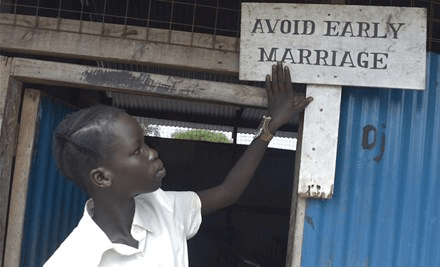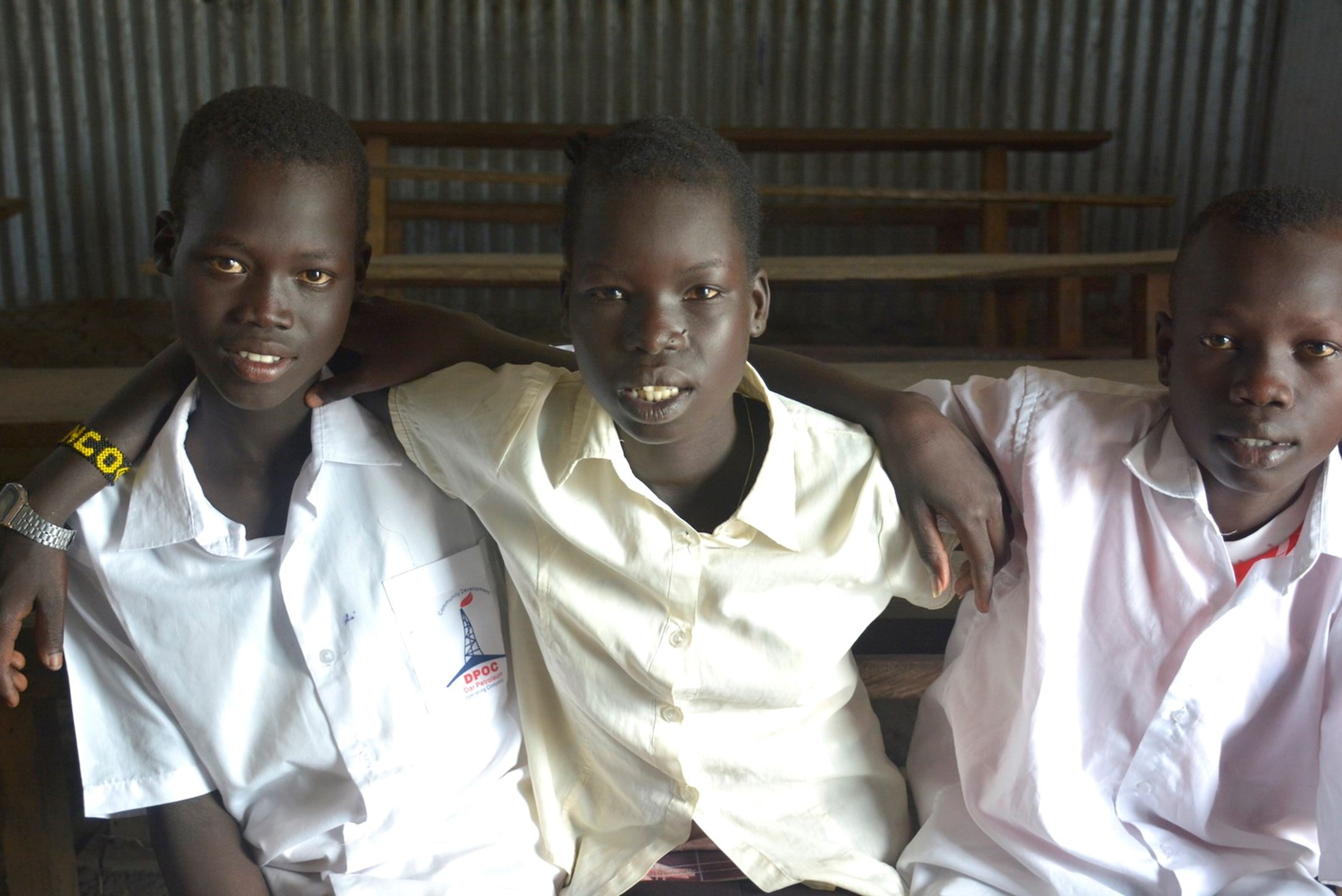
“The future is for girls”
declares Nyanyok as South Sudanese children assert their right to education.
Her father insisted she cannot go to school but stay at home to help her mother. School is only for her three brothers. Despite the changing perceptions of sending girls to school in South Sudan, Nyanyok Thon, the youngest of four siblings and an only girl, is still faced with this challenge.
World Vision worked with women in South Sudan’s Melut County supporting children to go to school and promoting child rights. Nyanyok’s mother participates regularly in World Vision’s projects which help promote these rights and uphold the welfare of girls and women.
Nyanyok’s father was a soldier who died during the fighting in 2014. The family got displaced and lost everything they own but Nyanyok’s mother is a strong woman who rose to the challenge of raising her children singlehandedly.
Her mother, Achol Thong, has a different belief than her father that girls also deserve to be in school. Her belief was further strengthened by what she learned at meetings with World Vision at Dengthoma camps.
In 2015, Nyanyok enrolled in the school established by World Vision in the camp. She joined the increasing number of girls in Melut became aware of her rights as a girl especially in getting an education.
“My mother supports me and encourages me to read at night after supper. I share my dreams with her and she believes in me, more than my brothers do”, says Nyanyok who now believes education will lead her to more opportunities in the future.
“In five years, early child marriage will hopefully be completely stopped in Melut County because of World Vision’s education program”, says the Dengthoma Camp Education Director Anthony Twong.

Nyanhok is very happy of the campaign against child marriage. “The future is bright for girls”, she adds as she urges girls like her to take their studies seriously.
Just a few years ago she was confined at home doing house work. Nyanyok’s life then revolved around their small hut in the camp. Going to school, meeting new friends and learning new things completely changed her outlook in life.
“World Vision has made us feel at home in the camp providing clean water, toilets and food assistance. I am glad World Vision has also invested in our education, even supplying us with dignity kits and school supplies so girls like me can study with no interruption”, adds Nyanhok.
Head teacher Agany Deng explains that 45 percent of the 4,585 primary school students in the camps are girls. “We conduct home visits if girls miss their classes or if they perform poorly at school to find out why. We offer also counseling to the parents and the girls”, he explains.
When 16-year old Ding Riak was asked about his opinion on girl attendance at school he says, “Back then, I did not care when girls did not attend their classes. Now I am better informed. Boys and girls are equal and girls should also go to school.”
Ding also added that learning with the girls is far better because it challenges the boys to study hard. “I teach my two young sisters how to read, write and help with their homework. This makes me happy. It is my dream to become an education advocate in the future.”
“Children see the changes that are happening in their community and they are inspired”, Twong says. He appeals to World Vision to construct more schools for the displaced children in their communities.
Since August 2015, World Vision’s Irish Aid Project in Upper Nile State has supported 13 schools, eight for the displaced children and five for the host community. The project has also constructed 45 semi-permanent classrooms for the displaced children who no longer attend classes under the trees and sit on the ground. Overall, it benefited 30,358 children.
Photos and story by Scovia Faida Charles Duku, Communications Officer